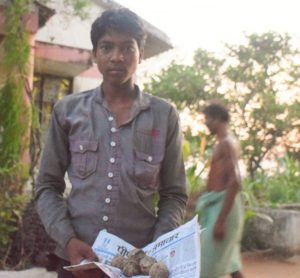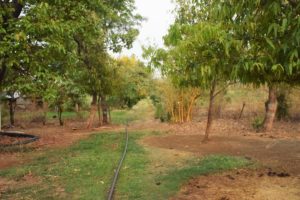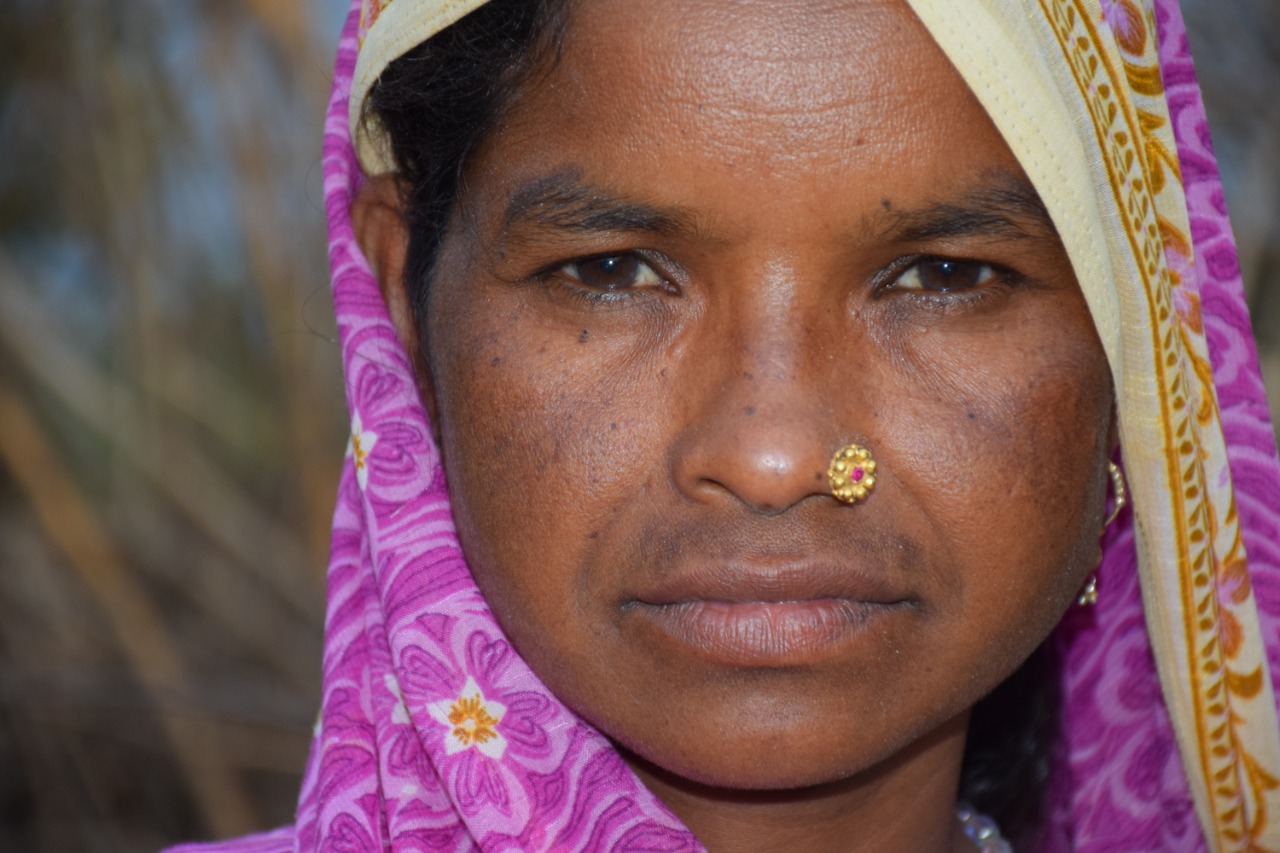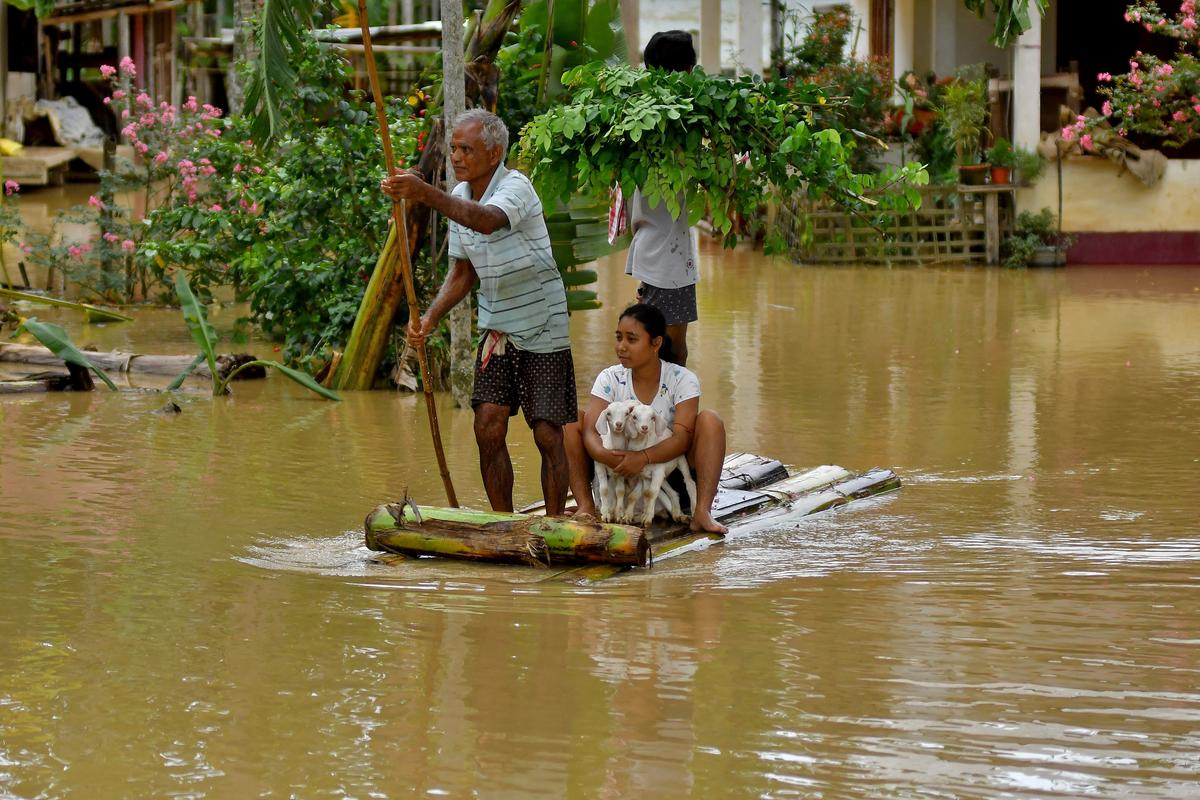CASA BLOGS

Children in this MP village are learning Organic Farming
After Sikkim becoming the India’s first organic state, a few children in this distant village of Madhya Pradesh are trying to address the rain-fed agricultural problems through organic farming.
15-year-old Anil Singh Teeka shows CASA Team how to make vermi-compost out of cow dung, cow urine, vegetable skins and earthworms.
“You add dry leaves, organic wastes like fruit and vegetable peels and leftovers, cow dung, collect cow urine and keep adding everyday to the matter, and do not forget to put a shade over the pit as earthworms will not function properly when exposed to direct sunlight,” Anil explains the vermin-compost process.
Very craftfully, Anil measures the adequate amount of compost and mixes it with a dark muddy matter in a pit. “It is a natural compost which adds minerals to the soil. The earthworms turn the waste into natural urea. We then filter the earthworms from the compost and use the same organisms in another pit.”
Every school summer holidays Anil spends time at Vigyaan Ashram – a place where former Council of Scientific and Industrial Research scientist B K Rai and his wife Aradhana Rai teaches agricultural labourers about organic farming practices.
The couple work towards promoting organic farming in water-scanty and rocky terrain of Mandla district (MP) where chemical farming is not suitable for agriculture and often results in crop failure.
The ashram is an example of how agricultural land in the arid region of Mandla District can be made cultivable using simple and no-cost scientific techniques. Organic farming increases the moisture retention ability of soil among other added advantages.
“I want to learn more and apply the same to my farm, tell my father that he does not have to struggle so hard. My father does not know the techniques; we have been only been using traditional farming methods. Now the pesticides have come in the market, and my father keeps coughing due to the fumes generate from the insecticides,” he says.

15-year-old Anil Singh Teeka at Vigyaan Ashram in Mandla District, Madhya Pradesh
Anil says he wants to change the pattern of agricultural productivity and that’s why he comes to the ashram for 2-3 months to learn all about organic farming.
“I was impressed with the results. I saw my father struggling to arrange water for irrigation purpose. When I came here, I learnt that with minimum water and adequate technique, we can grow healthy plants even during less rainfall,” Anil says.
Many children from tribal families of Madhya Pradesh are showing interest in organic farming these days.
Anil says that he will propagate the idea of organic farming among all the people in his village and “stop being dependent on chemicals”.
But not all children here are the part-time workers. 17-year-old Naresh works at the ashram everyday as he couldn’t afford to continue his formal education, mainly due to poverty and agricultural failure.
Naresh feels that the ashram has given him a purpose. “I see sir (Mr Rai) overcoming challenges and develop new ways to make land useful for agriculture activities. I like assisting him in his experiments,” he says.

17-year-old Nares at Vigyaan Ashram in Madhya Pradesh
At just 17, he narrates how an arid land can be converted into useful patch. “I learnt that a farmer can grow organic products with just 4-inch ploughed land. He need not have to waste energy and time in ploughing the land deeper to gain good crops. Crops like Sugarcane can be easily grown by using vermin-compost,” he says.
23-year-old Sunil Kumar Uikey, who also works in the campus, explains that pest attacks can be easily tackled in a natural way and a farmer does not have to waste his money on pesticides.
“Using insecticides will ruin the soil and crop health. The crops might grow faster once, but the next season the farmer struggles to bring back the nutrients in the soil. There are weeds, which if grown with the crops, keeps termites and insects at bay. We need to tell this to our people,” Sunil says.
According to Agriculture scientist Dr Rai, the soil in this particular region is not suitable for chemical farming. “Chemical farming needs a lot of water, which meant that every farmer needs to have its own irrigation system, which is impossible in the village.”
He believes that the organic farming is the “only way forward in this region if farmers are looking for a sustainable agriculture.”
Children and youth like Anil, Naresh and Sunil have been acting as catalysts in propagating organic farming among tribals.

Vigyaan Ashram in Mandla District, Madhya Pradesh, where its founder scientist Dr B K Rai and his wife give lessons to the tribal farmers on organic farming
 Previous Blog Post A vision for ‘Swachh’ India
Previous Blog Post A vision for ‘Swachh’ India #COP22 Road To Morocco: Climate Justice is Gender Justice
#COP22 Road To Morocco: Climate Justice is Gender JusticeFeatured Post

Mental Health Awareness in India: Addressing Key Challenges
8 Nov 2024
Mental health awareness is crucial in India, where millions silently struggle with mental health disorders, including depression, anxiety, and bipolar disorder. Despite growing recognition, India faces unique challenges in effectively addressing mental health issues. The stigma associated with mental illness remains a primary barrier. In Indian society, mental health issues are often misunderstood, leading to […]

Ensuring Girls’ Safety in India: A Path Toward Empowerment
20 Aug 2024
Girls’ safety in India remains a critical issue that has garnered increasing attention over the years. Despite various reforms and efforts from both government and civil society, challenges persist. From street harassment to domestic violence, gender-based discrimination continues to limit the freedom and safety of girls. While significant progress has been made in addressing these […]

The Connection Between Monsoons and Floods in India: An In-Depth Analysis
9 Jul 2024
India, a land of diverse climates and geographical features, relies heavily on the monsoon season for its agricultural and water resources. However, with the benefits of the monsoon rains come significant challenges, particularly in the form of floods. This blog explores the intricate relationship between the monsoon season and flooding in India, providing detailed insights […]



Leave a Reply
You must be logged in to post a comment.